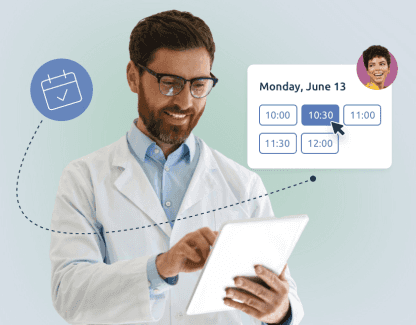In the fast-paced world of healthcare, a reliable patient appointment booking system is no longer optional; it's essential. For healthcare providers across the United States, the right system can streamline operations, reduce no-shows, and enhance the overall patient experience. Whether you're running a private clinic, hospital, or telehealth service, adopting a robust solution like Dr. Scheduler can make all the difference. But what exactly makes a patient booking system ideal for the U.S. healthcare environment? Here are the top features to look for.
1. 24/7 Online Booking Access
Patients expect convenience when scheduling healthcare visits. A top-notch patient appointment booking system in the United State allows users to book, modify, or cancel appointments online anytime with no phone calls or long wait times. With platforms like Dr. Scheduler, this feature empowers patients while relieving front desk staff from repetitive scheduling tasks.
2. HIPAA Compliance and Data Security
In the United States, patient data security is a legal and ethical priority. A complaint booking system must follow HIPAA (Health Insurance Portability and Accountability Act) regulations to ensure that sensitive health information is protected. Secure login, encrypted data transmission, and role-based access control are all vital features.
3. Automated Appointment Reminders
Missed appointments can disrupt daily operations and result in revenue loss. A strong patient appointment booking system includes automated reminders via SMS, email, or push notifications. These reminders reduce no-shows and keep both patients and providers on schedule. Dr. Scheduler, for example, offers customizable alert settings that align with patient preferences.
4. Real-Time Calendar Sync
Integration with healthcare providers' existing calendars is key. Real-time calendar syncing ensures that scheduling conflicts are avoided and availability is always up to date. Whether it’s Google Calendar or a native healthcare system, synchronization enhances workflow and reduces administrative errors.
5. Telehealth Integration
The rise of telemedicine in the U.S. means booking systems must support virtual visits. A modern platform should allow patients to schedule video consultations directly, with secure video links automatically included in the appointment confirmation.
6. Multi-Provider and Multi-Location Support
Larger practices and healthcare networks need systems that can handle multiple doctors, departments, or locations. Dr. Scheduler allows seamless management of various providers under one dashboard, improving internal coordination and patient access.
7. User-Friendly Interface
A clean, intuitive interface improves both patient and staff experience. The ideal system should require minimal training and allow users to navigate appointment options quickly. Accessibility features for individuals with disabilities are also a plus.
8. Integrated Patient Records and Notes
A top-tier booking system will connect seamlessly with Electronic Health Records (EHR), allowing providers to access patient information, appointment history, and clinical notes in one place. This integration helps deliver personalized, efficient care.
Conclusion
Choosing the right patient appointment booking system in the United State is crucial for success in the competitive U.S. healthcare market. With features like 24/7 access, HIPAA compliance, automated reminders, and EHR integration, Dr. Scheduler stands out as an ideal solution for practices aiming to enhance efficiency and improve patient satisfaction. Embracing these tools not only saves time, it transforms the way care is delivered.





Comments